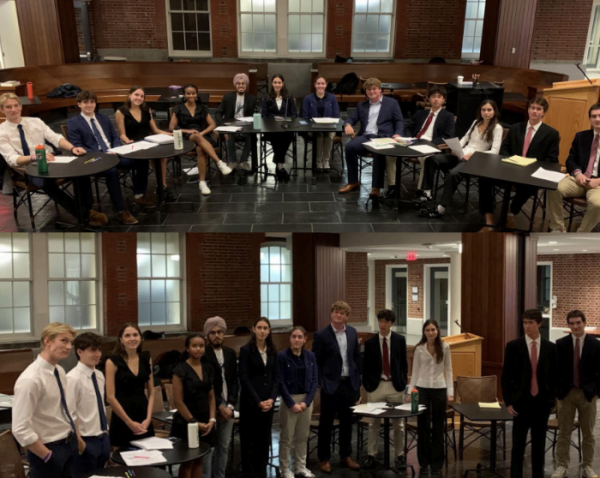Sustainable Investing: The Path Forward
From solar panels to the Waste Not Initiative, Groton students have led many environmental initiatives on campus. Over the past few months, the Sustainability Committee heads have been meeting with the Groton Trustees to discuss the incorporation of ESG factors into Groton’s investing decisions.
The money in Groton’s endowment is split up among multiple managers who individually decide whether they want to consider sustainability in their investments. According to Sustainability Committee co-head Aisling O’Connell ’21, “ESG stands for environmental, social, and governance. It is used to measure the environmental and social impact of a company.” Aisling and the other heads are advocating for Groton to “pick managers that do take ESG into account.” Their plan also involves “the consideration of environmental impact in cost analyses and having conversations with the investors if they are investing in a company that is detrimental to the environment.” In addition to environmental concerns, Aisling states that “these policies would also apply to companies who perpetrate racial bias or sell harmful items, such as tobacco.” However, do ESG considerations undermine investment returns? After reviewing many studies, Aisling concludes that compared to regular investing approaches, “ESG approaches do not have a negative effect on returns and are generally found to perform even slightly better.”
The Sustainability Committee has made significant progress in their advocacy for this policy. “The trustees we’ve talked to have been super supportive about ESG,” says Aisling, “and the Groton Finance Committee will be voting about it in the middle of October.” If all goes well, ESG will be presented at the Full Board Trustees’ Meeting in November.
With Groton’s 380 million dollar endowment, it seems obligatory to consider the environmental and social impacts of our investments. Aisling believes that “as a school and institution, we should be investing our money into places and ideas that we value. While smaller actions towards being more sustainable are also super important, the majority of our waste is created by larger corporations. If everyone took ESG factors into their investing, it would force these companies to change their business models.”
Aisling hopes that incorporating ESG “will push Groton to take sustainability into account more in the future.” Alongside sustainable investments, the Sustainability Committee is focused on four other initiatives this year— composting, releasing a newsletter, reducing COVID-caused waste, and organizing a major Earth Day event. The student body’s drive for a more sustainable campus is profoundly clear. If this new ESG policy is approved by the Board of Trustees, it will be a major step in Groton’s path towards a more sustainable campus.










